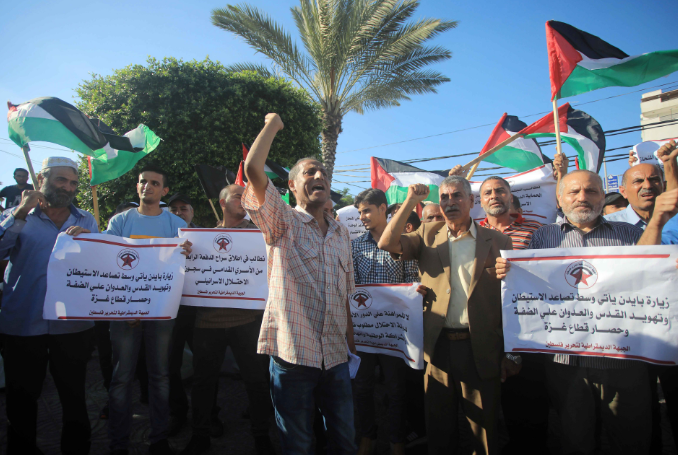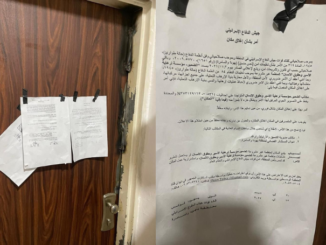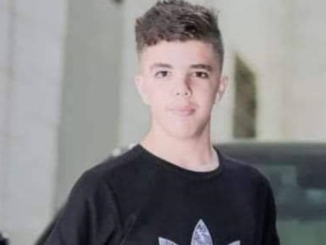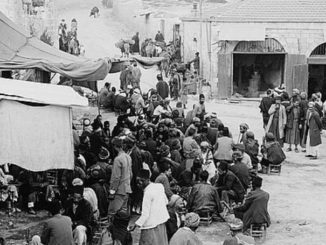
By Benay Blend
“While it is of its time, specific to the political and economic circumstances of Kanafani’s era,” writes Steven Salaita in the introduction to Ghassan Kanafani’s On Zionist Literature (2022), “it speaks to ongoing forms of colonial violence and dispossession central to the Palestinian moment” (p. xii). Indeed, Kanafani’s work has a “universal dimension” (p. xii), Salaita notes, serving as a counter-narrative to that of heads of states who reiterate Israel’s version.
In both the United States and Palestine, the families of the dead are asking questions. Writing on behalf of the Abu Akleh family, Anton Abu Akleh addresses the president directly, requesting in a letter that Biden meets with the family during his state visit. Specifically, he entreats that Biden responds to the family’s call for justice by meeting with Shireen’s parents in order to provide them with all information surrounding their daughter’s extrajudicial killing, after which they hope that he will retract the State department’s claim that gunfire that hit Shireen was most likely unintentional.
It is doubtful that Joe Biden supports the family’s claim, much less meet with them to hear their story. According to Aljazeera, no such meeting appears on Biden’s schedule. Instead, his trip will focus on securing support for NATO’s Russia/Ukraine war and strengthening the Abraham Accords by normalizing Israel’s ties within the region.
“Until Shireen’s killers are prosecuted and punished,” Iqbal Jassat writes, “expect Israel’s impunity to become more brazen, courtesy of America.” Upon arriving in Tel Aviv, Biden’s message made this clear. “The connection between the Israeli and American people is bone deep,” he said in his opening remarks. “I am proud to say that US relations with Israel are deeper and stronger than they have ever been.”
It should come as no surprise, then, that, in America, the whitewashing of extrajudicial killings is also common, —same whitewashing by the media, same cover-up by the police. On July 6, 2022, 15-year-old Brett Rosenau died from likely smoke inhalation during a raid by Albuquerque, New Mexico police (APD). Apparently, the SWAT team were after a man who had violated his parole when the suspect and the young man when into a nearby house.
Stun grenades and flash bangs thrown into the house resulted in a fire, killing the young man and leaving nothing of the family home. Moreover, there was no warrant despite the media repeating what the police had used to justify their case. Only a parole violation resulted in the tragic death of the teenager.
“Overpolicing of communities of color is a major problem,” said Barron Jones, a senior policy strategist at the American Civil Liberties Union of New Mexico and a former journalist. “And I just wonder if the approach would have been a little bit different if it was in another part of town.”
Moneka Stevens, a local community organizer, clarified the collusion between police and media. “We saw the media and the police,” she said, “working together to develop a narrative for the recent tragedy that occurred that will have a devastating impact on families directly impacted and our community. We saw lies after lies be widespread even nationally and the media was a HUGE contributor.”
From this case and others like it, Stevens concludes that the role of the media is “to control the narrative. Use critical thinking every time you see the media criminalizing our people,” she warns. “This time it was intentional to spread fear of African people, anti-blackness and more.”
Neither Abu Akleh’s nor Rosenau’s deaths are isolated incidents but rather what should be expected in a settler colonial state. There the police and military have license to act with impunity against the colonized who can expect no justice from mainstream media or the state.
While both cases are horrific, they deserve to be placed within a wider context that embraces the history of each country. As Aljazeera notes, at least 45 journalists have been murdered by Israel since 2000; Abu Akleh’s death gained traction because she worked for Aljazeera Arabic TV and wore a Press vest at the time that she was targeted by the Israeli military.
As for New Mexico, as of 2021, police in the Albuquerque metro area have shot 44 people, 42 of who died from their injuries. Since 2021, the state has had the second-highest rate of fatal police shootings, second only to Alaska. Although, as John Acosta notes, civil unrest peaked in 2015 following the death of John Floyd, outside investigations of use-of-force incidents by APD have brought no relief.
As the latest death by alleged police misconduct, Arseneau’s case has further eroded trust in APD. Likewise, in “Ghassan Kanafani: Voice of Palestine,” Louis Brehony writes that Kanafani had no faith in the PLO leadership of his time. He described negotiations with the Israeli leadership as “a conversation between the sword and the neck… I have never seen talks between a colonialist case and a national liberation movement.”
Given that analysis, little good will come from Biden’s talks either with Israeli officials or the Palestinian Authority that he was slated to meet. Colonialist to colonialist, colonialist to colonized—neither diplomatic effort will prove fruitful.
Indeed, Biden’s statement, after meeting with Palestinian leader Mahmoud Abbas, upheld press freedom while defending the US response to the killing of Abu Akleh, as if the two could be reconciled:
“She was an American, American citizen, and a proud Palestinian. … I hope that her legacy — her legacy will inspire more young people to carry on her work of reporting the truth and telling stories that are too often overlooked. The United States will continue to insist on a full and transparent accounting of her death, and we’ll continue to stand up for media freedom everywhere in the world.”
Writing about the need to “redefine the ‘victim intellectual,’” Dr. Ramzy Baroud explains that such incidents cannot be reduced to single cases, horrific as they might be. Without the “role of unpacking historical, political and geopolitical facts,” Abu Akleh appears only as the victim of a lone Israeli sniper rather than yet another state-sponsored murder of Palestinian journalists, all of which the US casts aside.
The same can be said for the child that APD allegedly burned alive inside his home. His case gained traction because of its chilling nature, but also because the same activists who have worked tirelessly against police violence continue to do so in the streets, in the courts, and in the media, using their own voices to convey the historic roots of Roseneau’s death.
In response to Biden’s snubbing of Abu Akleh’s murder, her niece Lina Abu Akleh wrote: “We would like Biden to do in Shireen’s case what his and previous US administrations have failed to do when other American citizens were killed by Israel: hold the killers accountable.” She might add that all of the Palestinians murdered and displaced since ’48, all of which Biden continues to gloss over, evidenced by his ignoring the signs that greeted him spelling out “APARTHEID” in large letters.
Indeed, the Palestinian people are a “nation with political agency, capable of articulating, resisting and, ultimately, winning their freedom, as part of a much greater fight for justice and liberation throughout the world,” Baroud concludes, a struggle that includes the fight against police brutality not just in New Mexico, but around the world.

– Benay Blend earned her doctorate in American Studies from the University of New Mexico. Her scholarly works include Douglas Vakoch and Sam Mickey, Eds. (2017), “’Neither Homeland Nor Exile are Words’: ‘Situated Knowledge’ in the Works of Palestinian and Native American Writers”. She contributed this article to The Palestine Chronicle.








They left out the fact that Brett Rosenau’s father was also extrajudicially murdered by Bernalillo County Sheriff’s deputies who were exonerated for shooting Brett Rosenau(the father) in the back. 15yo Brett Rosenau had no reason to believe he would find safety in police custody, and he was neither the subject of the police action or in any way related to the alleged criminality of the intended subject. APD and local media have made repeated attempts to criminalize Brett Rosenau by association to Qiaunt Kelley, who they’ve repeatedly lied about to foment disdain for as a criminal.